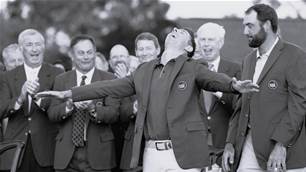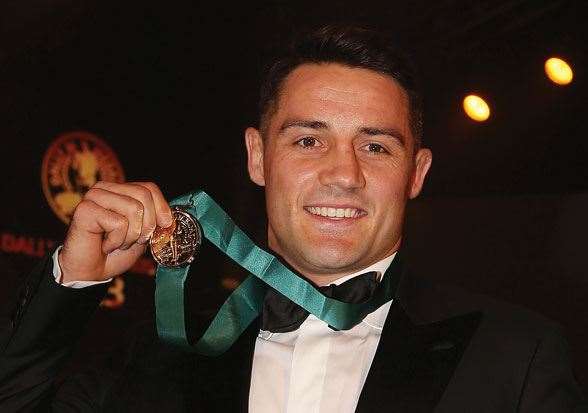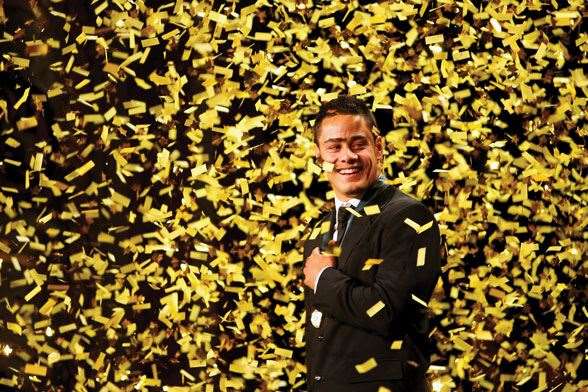Halfbacks, five-eighths and fullbacks forever in vogue with award's voters.
It’s delicious irony that rugby league’s Player of the Year award is decided upon by the very institution many of the game’s stars spend the season running away from – the media. All is forgotten on Dally M night though, as the hero climbs the steps to the podium and shakes hands with the PM, the player’s heart beating so furiously with pride it almost bursts through his Armani.
Rewarding league players for their week-in, week-out physical and emotional toil has been a fabric of the Australian game since the 1960s, but the Dally M didn’t arrive on the leaguescape until 1980. Up until ’97, players actually enjoyed two bites of the cherry at individual glory, with the ref-judged Rothmans Medal also bestowed upon the year’s “best and fairest”. The fair-play spirit of the Rothmans does live on in the media-voted Dally M though, with three “points” lost for each week missed through suspension.
When News Ltd surrendered its half of control of the code to allow for the establishment of the Australian Rugby League Commission, one of the many conditions of exit was that Rupert’s empire maintain ownership of the Dally Ms. Each home-and-away match is observed by a judge, who awards three points to the “man of the match”, two for second-best on the park and one for third. So who’s on the voting panel? Six journos from News Ltd’s Sydney daily, The Daily Telegraph, and seven former players (now on-air hosts) from across Channel Nine and Murdoch’s Sky New Zealand and Fox Sports networks.
Putting journalists in charge of voting on the Dally M has attracted plenty of cynicism over the years, from your general footy fan on the hill, to the sports journo not involved in the voting process because he/she works for a media company that isn’t News Ltd. It hasn’t been missed by too many, either, that the Dally M is almost always awarded to either a halfback, five-eighth or fullback, the positions which naturally impress footy journos the most. Your ones, sixes and sevens have proven more exciting subjects to scribes than the bookends in the forwards, who aren’t known for thrilling chips over the top, electrifying runs and scheming plays from the base of the scrum. Case in point: how well did you think Rooster Sonny Bill Williams played last year – arguably the standout season of this league-union-league-union career so far? The premiership-winning second-rower actually finished 28th in final voting, well behind beleaguered halfback Luke Walsh (ninth), unwanted by even his own club the Penrith Panthers, who missed the semi-finals. Plenty of examples of grace winning over grind can be found in any year’s Dally M count.
When voting went behind closed doors in this year’s race after round 16 (how the voting tally for an award run by a bunch of journos is kept secret is one of the game’s unsolved mysteries), Brisbane’s rising star (halfback) Ben Hunt sat top of the table alongside Cowboys veteran (halfback) Johnathan Thurston, the Queensland duo a point ahead of Parramatta ace (fullback/five-eighth) Jarryd Hayne and Souths’ Sam Burgess (a forward – wow!). Here’s hoping Big Sam channels the energy of Sharks hardman Gavin Miller, the last back-rower to take the award in ‘88 and ’89. Should've got practising on that chip kick, big fellah ...
WINNING AWARDS IS ONE THING, "DESERVING" THEM IS ANOTHER ...
What's very important to many rugby league observers around awards time is whether you deserve your medal. Does your win continue the legacy of the great Dally Messenger, the first star player to switch codes in the early 1900s and, as such, the sport’s first shining light? What has your behaviour been like off the field? If you’re a “poor role model” for children, should the league be honouring you with a medal at all? And how seriously does the rest of the game take these awards anyway? These moral dilemmas haunt some of the game’s biggest individual accolades to this day.
Critics of Andrew Johns were astonished to learn that the Newcastle legend was named as the eighth “Immortal” in 2012 – the respected magazine Rugby League Week adding him to the list of rugby league gods in spite of his self-confessed recreational drug-use issues. Two years earlier he’d made racially offensive remarks about Indigenous players while in Origin camp, too. Todd Carney’s on-going issues with alcohol didn’t affect his chances of winning the Dally M in 2010, which went down a treat with many parents ...
Over the years, too, it’s been proven that even an event as “sacred” as the Dallys can be used as a bargaining tool: in 2003 the Dally M went unrewarded following an industrial dispute over pay between the league and the players’ association. The players threatened to boycott the awards unless their demands for more money were met, the league called their bluff, and the whole ceremony was cancelled just days before the big dance.
League also discovered just how “prestigious” the punting world considered end-of-season playing awards in 1994, when it was leaked that Bears legend David Fairleigh would win that year’s Rothmans Medal. The betting sting that resulted meant punters couldn’t put their money on who they thought would be crowned the player of the season for the following 15 years.
Related Articles
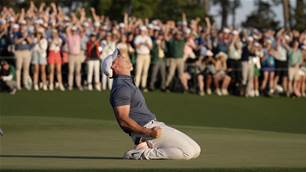
Feature Story: Moving the Needle
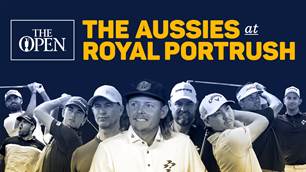
The Aussies at The Open
